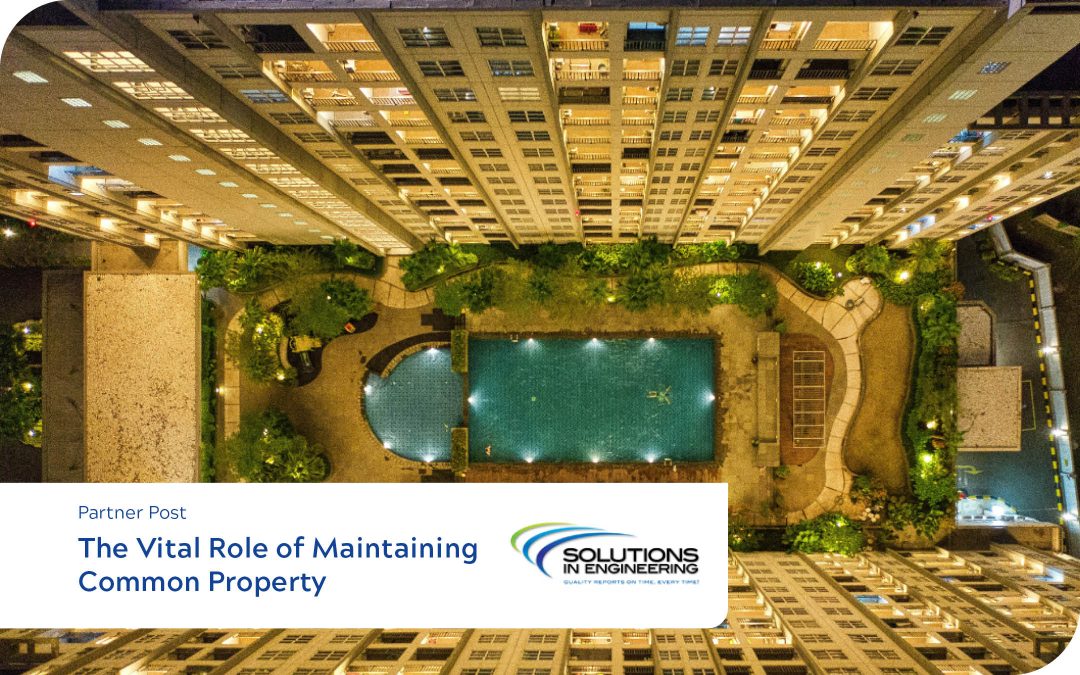The importance of upkeeping common areas within a body corporate cannot be overstated. These shared living spaces, including stairwells, pools, lifts, gardens, gyms and BBQ areas, are the collective responsibility of all property owners. Ensuring the maintenance and upkeep of these common areas is not just a matter of aesthetics, it’s a fundamental aspect of preserving the property’s lifespan and value.
The Body Corporate and Community Management (Standard Module) Regulation 2020 (Qld) requires that all bodies corporate have and maintain a sinking fund which will allow them to budget for future maintenance, replacement of specific items and building components, and capital expenditure. Under Section 160(3) of the Regulations, the sinking fund budget must allow for raising a reasonable capital amount to provide for necessary and reasonable spending from the sinking fund for the financial year. The fund should also account for major expenditure over the 9-year period from the end of the financial year. Section 1699(1) of the Regulations details that the sinking fund may be applied towards spending of a capital or non-recurrent nature, the periodic replacement of major capital items, and other spending that should reasonably be met from capital.
By implementing and following a sinking fund budget, bodies corporate can clearly and easily upkeep common areas and ensure preservation of the property.
What are the key benefits from adequately funding and maintaining your common property?
Preserving Aesthetics and Kerb Appeal
Common property areas, such as gardens, lobbies, parking lots, and recreational spaces, are the first impression residents and visitors have of a community. Well-maintained common areas enhance the overall aesthetics of the development, fostering a sense of pride and satisfaction among residents. This, in turn, can positively impact property values and attract potential buyers or renters.
Enhancing Property Values
The state of common property directly influences property values within a body corporate. Dilapidated or poorly maintained common areas can result in a decrease in property values, which is detrimental to all property owners. By contrast, investing in the maintenance and improvement of these shared spaces can lead to an increase in property values, benefiting everyone in the community.
Ensuring Functionality and Safety
Most of the common areas in bodies corporate are for a practical purpose, such as driveways, footpaths, stairwells and security systems. Regular maintenance is essential to ensure that these amenities function optimally and safely. Neglecting maintenance can result in costly repairs or, worse, accidents that compromise residents’ wellbeing.
Long-Term Cost Savings
While investing in maintenance and repairs might seem costly in the short-term, it often leads to significant long-term cost savings. Timely maintenance can prevent minor issues from escalating into major problems that require costly fixes. A well-maintained building and its systems tend to have lower operating costs and fewer unexpected expenses.
Environmental Considerations
Maintaining common property areas can also contribute to environmental sustainability. Implementing energy-efficient lighting, sustainable landscaping, and eco-friendly infrastructure not only reduces environmental impact but can also lead to reduced operating costs over time.
Avoiding Special Levies
Adequate budgeting is crucial to cover the costs of maintenance and repairs related to common property defects. A well-funded sinking fund ensures that the body corporate has the necessary resources to address defects when they arise.
The legislative requirements for a body corporate to have a sinking fund in Queensland are comprehensively designed in the Body Corporate and Community Management Act 1997 (Qld) and the relevant regulations. This legislation ensures that properties are adequately funded to address the ongoing maintenance and repair needs of common property assets. Compliance with legal requirements is essential to safeguard the long-term value and functionality of strata-titled properties while promoting transparency and fairness among lot owners.
The maintenance of common property within a body corporate is not merely a responsibility; it is an investment in the quality of life, property values, and the overall wellbeing of the community. The benefits of proper maintenance extend beyond aesthetics, impacting safety, long-term savings, community cohesion, and even the environment. Property owners and body corporates should recognise the importance of this responsibility and work collaboratively to ensure that common property areas are well-maintained for the benefit of all. In doing so, they not only preserve the present but also secure the future of their shared living spaces.
